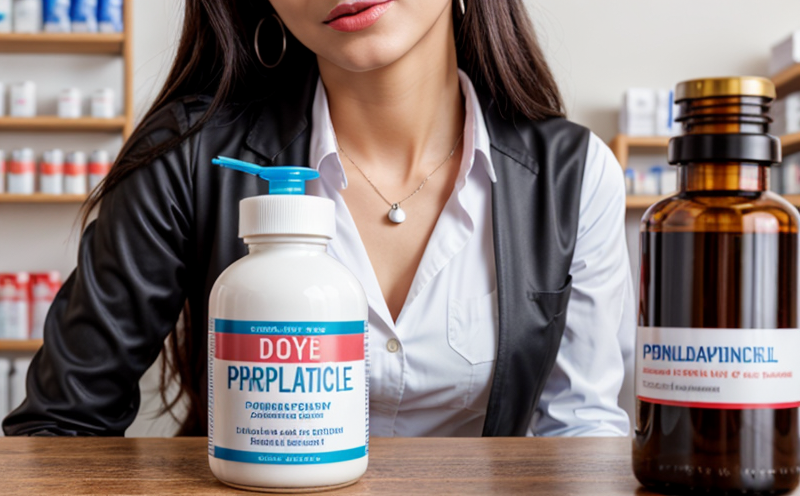Pharmaceutical advertising and marketing compliance refers to the process of ensuring that all promotional materials and activities conducted by pharmaceutical companies are in accordance with regulatory requirements, industry guidelines, and company policies. Compliance is crucial for maintaining a positive reputation, avoiding fines and penalties, and ensuring patient safety.
In recent years, pharmaceutical companies have faced increasing scrutiny from regulatory agencies, consumer advocacy groups, and the media regarding their advertising and marketing practices. The rise of social media has also added complexity to compliance efforts, as these platforms present new challenges for monitoring and enforcing promotional activities.
Regulatory requirements for pharmaceutical advertising and marketing vary by country, but most jurisdictions have laws and guidelines governing what can be claimed about a products safety, efficacy, and benefits. In the United States, for example, the Federal Trade Commission (FTC) is responsible for enforcing laws related to deceptive or unfair trade practices, including pharmaceutical advertising.
In addition to regulatory requirements, industry associations such as the Pharmaceutical Research and Manufacturers of America (PhRMA) have established guidelines for member companies on marketing practices. These guidelines emphasize transparency, accuracy, and fairness in promotional activities.
Key Components of Pharmaceutical Advertising and Marketing Compliance
Accurate and Non-Misleading Claims: Promotional materials must not make unsubstantiated or exaggerated claims about a products benefits or risks. This includes avoiding claims that are not supported by clinical trial data or evidence-based research.
Labeling and Packaging: Labeling and packaging must comply with regulatory requirements, including the inclusion of necessary warnings, precautions, and contraindications.
Prescriber Education: Pharmaceutical companies must provide educational materials to healthcare professionals on a products benefits, risks, and proper use. These materials must be accurate, unbiased, and not misleading.
Patient Information: Patient information sheets or other promotional materials should provide clear, concise, and balanced information about a products benefits and risks.
Detailed Examples of Compliance Issues
A pharmaceutical company launches a new medication for hypertension. In its marketing campaign, the company claims that the product is the most effective treatment on the market, but fails to provide data to support this claim.
This example illustrates a violation of regulatory requirements regarding accurate and non-misleading claims. The companys statement may be considered unsubstantiated or exaggerated, which could lead to enforcement action by regulatory agencies.
A pharmaceutical company sends free samples of its new medication for hypertension to healthcare professionals. However, the accompanying promotional materials include an unsubstantiated claim about the products benefits in patients with certain medical conditions.
This example illustrates a violation of industry guidelines regarding prescriber education and patient information. The companys promotional materials may be considered misleading or inaccurate, which could lead to enforcement action by regulatory agencies.
QA Section
Q: What are some common pitfalls that pharmaceutical companies should avoid when creating promotional materials?
A: Pharmaceutical companies should avoid making unsubstantiated or exaggerated claims about a products benefits or risks. They should also ensure that labeling and packaging comply with regulatory requirements, including the inclusion of necessary warnings, precautions, and contraindications.
Q: How do I determine whether a claim is accurate and non-misleading?
A: To determine whether a claim is accurate and non-misleading, you can consider the following:
1. Are there data or evidence to support the claim?
2. Does the claim accurately reflect the products benefits and risks?
3. Is the claim balanced and not misleading?
Q: What are some industry guidelines for marketing practices that pharmaceutical companies should follow?
A: Industry associations such as PhRMA have established guidelines for member companies on marketing practices. These guidelines emphasize transparency, accuracy, and fairness in promotional activities.
Q: Can social media be used to promote pharmaceutical products?
A: Yes, but with caution. Pharmaceutical companies must comply with regulatory requirements and industry guidelines when using social media to promote their products. They should also ensure that any claims made about a products benefits or risks are accurate and non-misleading.
Q: What are some potential consequences of violating advertising and marketing compliance regulations?
A: Violating advertising and marketing compliance regulations can result in fines, penalties, reputational damage, and decreased sales. In extreme cases, it can also lead to enforcement action by regulatory agencies, such as withdrawal of a product from the market or revocation of a companys license.
Q: How do I report suspected non-compliance with advertising and marketing regulations?
A: You can report suspected non-compliance with advertising and marketing regulations to regulatory agencies, industry associations, or internal compliance departments.

































